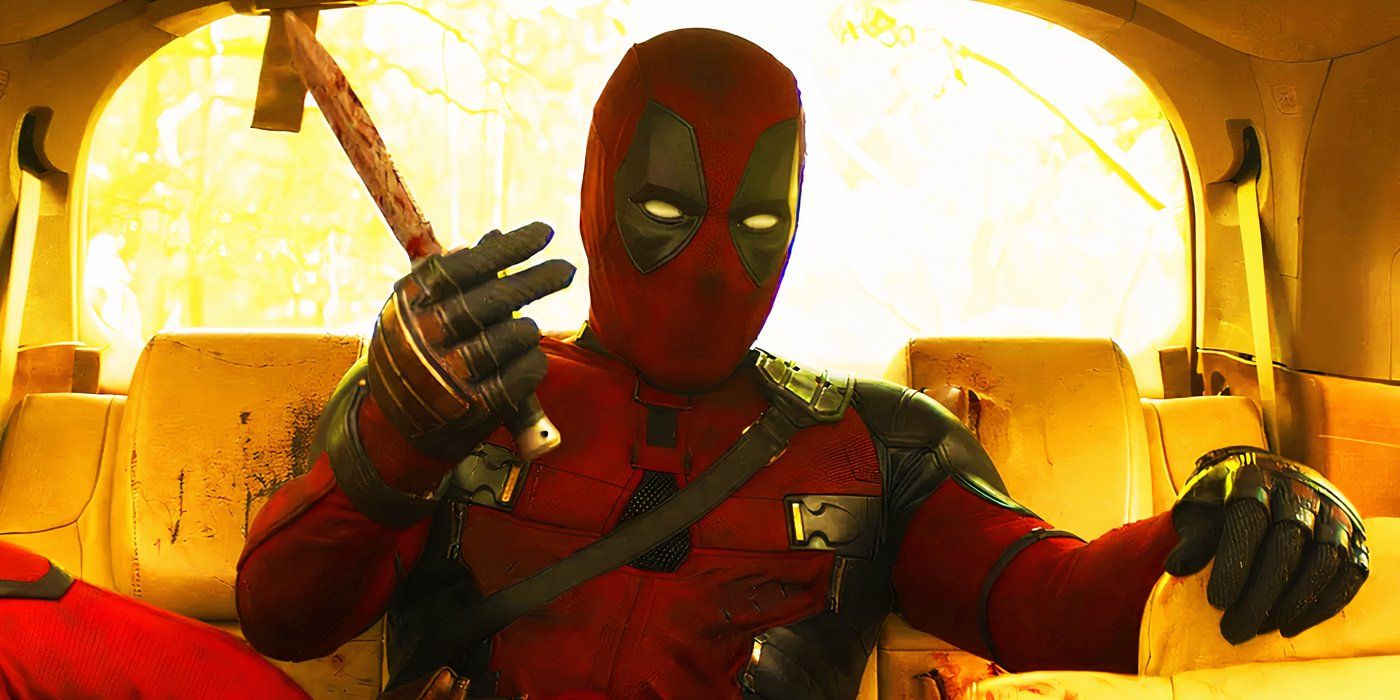The MCU just managed to have its last four movies all follow the same villain trick – and yet, this approach is able to work in each of the films in question. The MCU timeline has been building up to the final act of the Multiverse Saga for the past few years, resulting in some particularly interesting movie spectacles.
Whether it’s Deadpool & Wolverine‘s intense multiversal shenanigans or Thunderbolts* providing a high-stakes fight against a man in a chicken suit, the MCU has pulled no punches in its last few releases. That said, it has created an interesting trend in its last four films, with the ending of The Fantastic Four: First Steps continuing a months-long story habit.
The Fantastic Four: First Steps Sees Galactus Be Bested By The Power Of Love
While the Fantastic Four now have a powerful new addition to their family in the form of Franklin Richards, the movie pits them against one of the most powerful characters in Marvel history to try and protect the newborn. This culminates in a fight against Galactus in The Fantastic Four: First Steps’ ending as he attempts to take Franklin.
With Franklin currently being a baby – even if he’s a baby with immense powers that have led Galactus to wish to steal him away from his family – he’s not that useful at this point. Though the Fantastic Four have notable powers, it’s clear at their normal capacity they don’t hold a candle to Galactus, who initially shrugs them off easily.
This is, of course, until Galactus is able to capture Franklin, which brings Sue into all-or-nothing mode. With a sudden increase of her powers that’s seemingly brought about by her deep love for Franklin and terror at what Galactus could do to him, Sue’s abilities are suddenly able to affect Galactus on a level they simply hadn’t before.
With Reed Richards rescuing their son from Galactus’ grip, Sue is able to push the villain into a portal to the edge of reality. However, this is at the cost of her life, having had to use her powers on a level that simply taxed her body too much – though Franklin seems to bring her back with his own powers.
Altogether, while Galactus wasn’t fully defeated, he is bested essentially by the love Sue has for Franklin. On a similar level, Johnny Storm’s initial decision to be the one to push Galactus back through the portal to cement their victory – and Silver Surfer’s decision to push him aside to do it instead – are also decisions born of compassion.
The MCU’s Past 4 Movies Have All Seen Immensely Powerful Villains Be Defeated By Compassion
The story of an immensely powerful Marvel villain who the heroes couldn’t possibly hope to defeat in other circumstances being defeated by love, teamwork, and compassion is one audiences should now be quite familiar with. Although they all explore this approach in different ways, the MCU’s past 4 movies have all used some form of this story.
This also means the MCU’s movies have used this same villain story trick for the past year, since Deadpool & Wolverine released in July 26, 2024.
Before The Fantastic Four: First Steps, Thunderbolts* explored this same idea, with both Sentry and the Void being far more powerful than the rest of the collected antiheroes the movie centers on. Instead, Yelena and the rest of the team’s understanding of and compassion for Bob allows him to grapple with his darker side and wrestle control back from it.
Prior to that, Captain America: Brave New World‘s fight between Captain America and the Red Hulk followed similar lines. Following a previous conversation Sam had with the then-President, he’s able to eventually pacify the Red Hulk by reminding him of his daughter and their last bit of time together, which lets Ross revert to human form.
Deadpool & Wolverine was the movie to set this four-movie-long trend off, though. In Deadpool & Wolverine‘s ending, Wolverine attempts to sacrifice himself to stop the Time Ripper that the immensely powerful Cassandra Nova is overloading, only for Deadpool to try and take his place – leading them to both end up trying to deal with the machine.
Deadpool and Wolverine sharing the brunt of the power surge that comes from the Time Ripper means that they’re both able to live – and kill Cassandra Nova in the process, as she’s destroyed alongside the machine she’s trying to use. Ultimately, this means the last four movies have all taken the same route with how their villains are defeated.
Why The MCU Movie Trend Consistently Works
Pitting a movie protagonist against a far stronger force and depicting how they overcome the odds is a story concept that works effectively in almost any genre. However, the superhero genre is particularly good at using these kinds of stories, since they have so many immensely powerful villains to use, and so many heroes who work as underdogs.
Seeing characters face almost certain doom to do what they think is right is naturally emotionally powerful, and is used effectively in each of these examples to make you root for the heroes. As such, it will be interesting to see if Spider-Man: Brand New Day continues this MCU trend, or if it ends with The Fantastic Four: First Steps.
- Cast
-
Robert Downey Jr., Chris Evans, Scarlett Johansson, Samuel L. Jackson, Jeremy Renner, Chris Hemsworth, Mark Ruffalo, Edward Norton, Paul Rudd, Tom Holland, Tom Hiddleston, Anthony Mackie, Cobie Smulders, Brie Larson, Chadwick Boseman, Sebastian Stan, Chris Pratt, Dave Bautista, Zoe Saldana, Bradley Cooper, Vin Diesel, Pom Klementieff, Josh Brolin, Karen Gillan, Clark Gregg, Paul Bettany, Don Cheadle, Benedict Cumberbatch, Evangeline Lilly, Simu Liu, Aaron Taylor-Johnson, Angelina Jolie, Kit Harington, Salma Hayek, Richard Madden, Barry Keoghan, Gemma Chan, Ma Dong-seok, Brian Tyree Henry, Kumail Nanjiani, Lauren Ridloff, Lia McHugh, Jonathan Majors
Source link
